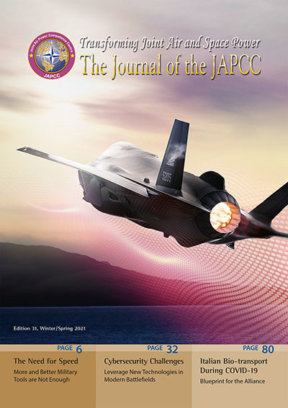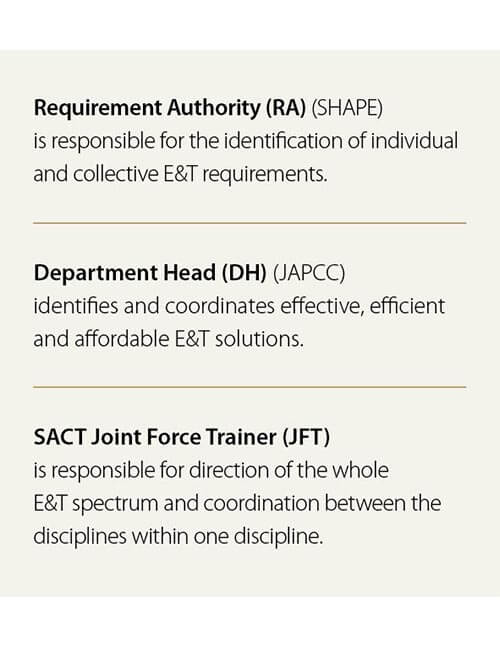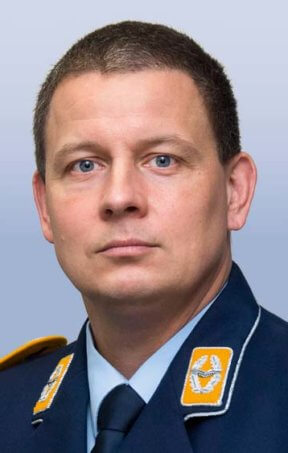Introduction
Space support plays a significant role in today’s military operations and governmental decision-making processes. The current technical advantage in Space allows the NATO Alliance to act more precisely, make assessments earlier based on independent data, and maximize the benefits of modern command and control. However, technical developments are ongoing worldwide and it is challenging for Alliance members to maintain their current advantage.
NATO started to incorporate Space professionals into its organization at the beginning of the last decade when initial positions were established inside the NATO Command Structure (NCS). Based on requirements and operational needs, the number of positions has increased over time but the overall number of positions that ensure persistent Space Support in NATO Operations is still limited. In parallel, NATO established the Overarching Space Policy (OSP)1, which then led to the declaration of Space as an operational domain for NATO.2 The implementation of the Space domain will trigger follow-on developments that give further advice on how the Space Support structure of NATO has to evolve. This includes the author’s opinion on how and where additional Space personnel have to be assigned not only in the NATO Space organization but also in other staff functions such as intelligence, planning, or operations.
All this will lead to a significant demand for Space personnel inside the NCS within the next few years. A similar assessment is likely for the NATO Force Structure (NFS). Even while the number of required personnel has yet to be requested or even agreed upon, there will clearly be an increased demand for Space Education and Training (E&T) within the Alliance. These efforts will be essential to ensure that properly trained and experienced personnel are available to staff the new positions.
Organization of Space Education and Training Today
NATO personnel have to be trained through national courses to ensure they have a comprehensive baseline of Space education before they can be sent to their NATO positions. Only a few Space-faring nations of the Alliance currently offer Space courses and education, and few of these national courses are offered to Allies, as stated in the Discipline Alignment Plan (DAP), which is updated annually.3 Nevertheless, as a precondition, there usually must be bilateral agreements signed, allowing students of one nation to attend courses in another nation. The management of the Space education in NATO is organized by the Department Head (DH) in close coordination with the Requirement Authority (RA) and the Joint Force Trainer (JFT).4
Currently, NATO offers one course at the NATO School Oberammergau called ‘Introduction to Space Support for NATO Operations’ for entry-level Space professionals and personnel working on Space-related activities as the primary target audience.5 The overall aim is to give non-Space personnel inside NCS, NFS as well as nations an overview of opportunities and limitations of Space Data, Products, and Services (DPS). Additionally, the NATO process for accessing Space DPS is taught relating to how and where the Space Support Coordinators, who are organizing the Space support coordination process, can be found. This basic course can be seen as a first minor step in individual Space education to train Space personnel to the standard required.
A second course is currently in development and planned to be established in 2021. This ‘Space Support Coordinator Course’ will focus on personnel filling Space positions, and teaches the specific DPS processes utilized inside the Alliance. In the future, this course may become a mandatory requirement for nationally educated and trained Space personnel to be certified for NATO Space positions.
It is important to understand that the mere completion of these two NATO School Oberammergau courses does not provide the knowledge needed to effectively fill a specific NATO Space position nor does it give the ability to complete all Space-related activities required and requested of the positions. These courses add additional NATO requirements to an already existing national E&T in unity with high skill.
Space Educational Demands for the Future
Analysis of the E&T requirements, the planned increase in the number of Space personnel in NATO, and the associated timeline for filling these positions is needed. This requires an update of all related documents: the Strategic Training Plan (STP), the Training Requirements Analysis (TRA), and the Training Needs Analysis (TNA), by the RA and the DH for Space Support to NATO Operations Discipline.
Additionally, an agreement concerning the required basic education standards is needed to ensure only sufficiently trained personnel are sent to NATO Space positions. Once these standards are agreed upon, they need to be fixed in the job descriptions of the Space-related positions. Establishing standards that incorporate NATO and national courses will provide personnel with the best possible opportunity to be prepared to serve in Space positions inside the Alliance. As the development of Space support also emerges inside the national structures, some non-Space faring nations are currently establishing various national structures and processes, with the eventual goal of being able to contribute to the NATO Space process as well. To avoid excluding any Alliance nation, NATO must find a solution that encompasses at least one national course or a series of courses that can be offered to any ally or groups of allies. To ensure this, bilateral and multilateral agreements have to be assessed and potentially established to give allies a chance to pursue the best educational opportunities. NATO should use this chance to ensure a more federated approach in staffing its Space positions. The inclusion of more willing and interested allies should be the goal, particularly in the long-term in order to enhance NATO’s Space capabilities. Conversely, lowering the required educational requirements or allowing insufficiently trained personnel to staff a NATO Space position must be avoided.
With the establishment of Space as an operational domain, personnel dealing with Space-related capabilities must foster connections inside the headquarters. To ensure a broader understanding of the Space domain inside all NATO headquarter staffs, an initiative to apply Space lessons in more E&T opportunities should be started. Especially at the NATO School Oberammergau and potentially other Education and Training Facilities (ETF) such as Centres of Excellence (CoE) that offer courses for disciplines such as intelligence, operations, and planning. Space lessons should be implemented to foster increased understanding and it is imperative for the DH and RA for Space to begin talks with Department Heads of other E&T disciplines while striving to achieve a common understanding and exploit synergies.
Notwithstanding the previously mentioned NATO-owned, NATO-accredited, and national ETFs, it seems appropriate to also assess commercially available E&T opportunities. These can mitigate shortfalls within the major augmentation phase, which can be expected in the mid-term. However, it must be kept in mind that military requirements and needs for the use of Space may not completely align with commercial or civilian courses.
Requirements and Recommendations
Agree on a baseline level of Space E&T to be ensured prior to an individual being sent to a
NATO position. Agree on the offered and selected courses (national, NATO ETF and commercial opportunities) that are valid to ensure this kind of education.
Openly discuss and encourage the Space faring nations to offer more courses or make more seats available for allies, to ensure continuity amongst nations and to support NATO’s future staffing.
Identify action items the non-Space faring nations have to achieve (e.g. data sharing agreements) to prepare personnel to be sent to national courses and assist the nations to do so. This can be bi- or multilateral, as well as for the whole Alliance.
Identify non-Space faring allies who are willing to staff NATO Space positions. Based on this, assess an annual demand for required courses and/or education and training that Space faring nations are requested to provide to allies.
Assess the required number of iterations for the NSO courses (or those provided by other NATO ETFs), based on the personnel augmentation that should be decided within the short to mid-term. This also applies to the Space lessons that have to be integrated into other discipline’s courses.
Pass all information on available national Space related E&T opportunities, open or potentially open to member nations and/or for NATO to the DH for Space to increase the number of offers in this domain.
Conclusions
E&T for Space Support in Operations needs to be transformed and adapted to the new status of Space as an operational domain. This requires a significant number of E&T opportunities, both in NATO and within the nations. Therefore, it is necessary to understand how many additional NATO Space personnel are planned within the NCS and NFS. NATO, with all its ETF’s, does not offer baseline E&T to ensure non-Space personnel can be trained while serving in a NATO assignment. The first key elements are national courses offered by Space-faring allies and making these available to the Alliance.













